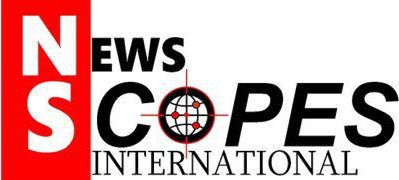حزب الله يتلقى مسودة لوقف إطلاق النار: تطورات الوساطة الدولية والرهانات الإقليمية
كشفت مصادر إعلامية أن حزب الله اللبناني قد تسلّم نسخة من مسودة مقترح لوقف إطلاق النار، والتي نقلتها السفيرة الأميركية في بيروت إلى رئيس مجلس النواب نبيه بري. وتضمنت المسودة تفاصيل دقيقة تتعلق بهدنة محتملة بين حزب الله وإسرائيل، وسط تصاعد التوترات العسكرية في المنطقة.
وأكدت المصادر أن الحزب سيقوم بدراسة معمّقة للنقاط الواردة في المقترح قبل تقديم ملاحظاته الرسمية إلى رئيس البرلمان. ويُنتظر أن يتخذ حزب الله موقفه بناءً على تقييم شامل لمصالحه السياسية والعسكرية.
تفاصيل الاتفاق وآلية التنفيذ
تتضمن المسودة بندًا يتعلق بدور الولايات المتحدة كمراقب رئيسي لتنفيذ الاتفاق، عبر تقنيات تكنولوجية متقدمة ومراقبة بشرية، بهدف ضمان الامتثال المتبادل. وأوضحت مصادر إسرائيلية أن هذا الدور الأميركي يمنح إسرائيل “شرعية للتحرك” في حال وقوع أي خرق للاتفاق.
من جهة أخرى، عبّرت فرنسا عن استعدادها للمشاركة في جهود مراقبة تنفيذ الاتفاق، بينما ستواصل قوات “اليونيفيل” التابعة للأمم المتحدة دورها في مراقبة الوضع على الأرض. ورغم الانتقادات الإسرائيلية المستمرة لليونيفيل بشأن “فشلها” في منع تسليح حزب الله، فإن دورها لا يزال محوريًا.
أما روسيا، فقد أبدت استعدادها للتركيز على منع تهريب الأسلحة عبر الحدود اللبنانية-السورية، إلا أن دورها في هذا الإطار سيكون محدودًا وغير محوري.
رفض لبناني لبعض بنود الاتفاق
رغم الجهود الدولية، أبدت الحكومة اللبنانية اعتراضات على بعض البنود، خصوصًا ما يتعلق بحق إسرائيل في دخول الأراضي اللبنانية حال حدوث خروقات. وأكد رئيس مجلس النواب نبيه بري أن “أي اتفاق يمس سيادة لبنان أو يخدم مصالح إسرائيل لن يكون مقبولًا”.
يُذكر أن الاتفاق يعتمد على قرار مجلس الأمن الدولي رقم 1701 الصادر عام 2006، والذي نصّ على إنشاء منطقة خالية من الأسلحة بين الحدود اللبنانية والإسرائيلية. ومع ذلك، فإن التطورات الأخيرة أظهرت محدودية فعالية القرار في منع حزب الله من تعزيز قوته العسكرية.
المصدر: الجزيرة
Hezbollah Receives Ceasefire Proposal: Key Developments in International Mediation and Regional Stakes
Sources revealed that Hezbollah has received a draft ceasefire proposal delivered by the U.S. ambassador to Lebanese Parliament Speaker Nabih Berri. The draft outlines detailed provisions for a potential truce between Hezbollah and Israel amid escalating military tensions in the region.
The party is reportedly conducting a comprehensive review of the proposal’s terms before submitting its feedback to the Lebanese parliament. Hezbollah’s stance will hinge on a thorough assessment of its political and military interests.
Agreement Details and Monitoring Mechanisms
The proposal includes a provision for the United States to play a central role in monitoring the implementation of the agreement. This would involve advanced technological systems and on-ground personnel to ensure compliance. Israeli sources emphasized that this mechanism provides Israel with “legitimacy to act” in the event of any violations.
Meanwhile, France has expressed readiness to contribute to monitoring efforts. The United Nations Interim Force in Lebanon (UNIFIL) will continue its role, despite repeated Israeli criticism of its perceived failure to prevent Hezbollah's armament.
Russia has also pledged to help monitor the Lebanese-Syrian border to curb arms smuggling. However, its role in this framework is expected to remain secondary and limited.
Lebanon’s Rejection of Specific Clauses
Despite international mediation, the Lebanese government has voiced strong objections to certain clauses, particularly those granting Israel the right to enter Lebanese territory in case of violations. Speaker Nabih Berri stated firmly that “any agreement compromising Lebanon’s sovereignty or serving Israel’s interests is unacceptable.”
The proposed agreement builds on UN Security Council Resolution 1701, issued in 2006, which established a weapons-free zone along the Lebanon-Israel border. However, recent developments have exposed the limitations of this resolution in curbing Hezbollah's military buildup.
Translated by international scopes team








